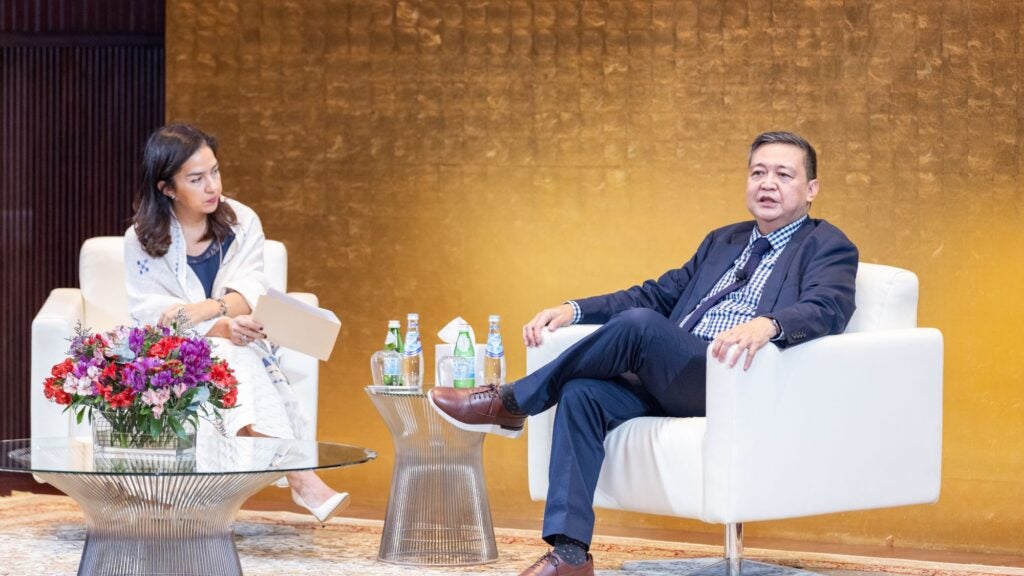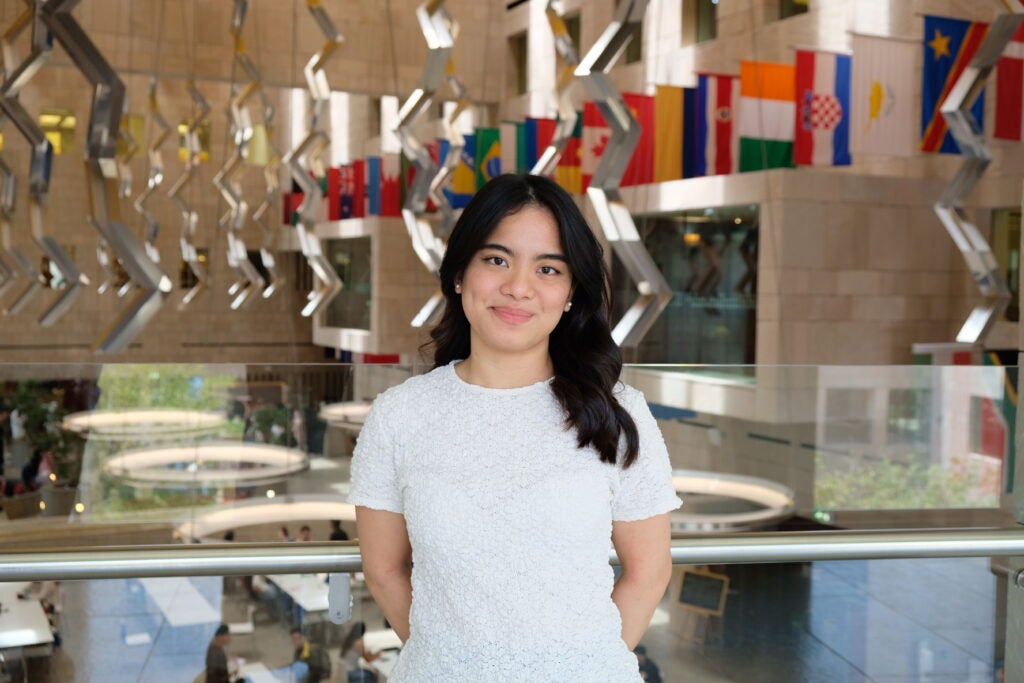POV: The Surprising Way the Duterte ICC Case Inspired Me To Embrace My Role in the Filipino Diaspora

By Daphne Soriano, Class of 2028
“Justice is rarely linear,” stated Dean Safwan Masri in his welcome to the recent public talk “Duterte at the International Criminal Court: Global Implications” at Georgetown University in Qatar. As a Filipino student from the diaspora studying Culture and Politics at GU-Q, the conversation that followed on Philippine president Rodrigo Duterte’s International Criminal Court (ICC) case felt deeply enlightening and validating. Early memories of being shocked by Duterte’s crass remarks while watching the news from the Philippines are part of the reason I wanted to learn more about politics in the first place, and having the university focus on the Philippines felt like a full-circle moment.
When the evening’s speaker, Attorney Ruben Carranza, a senior expert in international law at the International Center for Transitional Justice in New York, emphasized that Duterte’s “War on Drugs” was a class war, I recalled the deeply harrowing stories I grew up hearing. Carranza explained how thousands of poor Filipinos were killed through policies such as Oplan Tokhang—the so-called “knock and kill” operations, and I remembered a story my high school English teacher told me about witnessing a corpse lying face down on the street on the way to work, just one life among tens of thousands extinguished.
Yet, not all Filipinos are against Duterte, even abroad, party loyalties remain strong, and this timely discussion, which came a day after an ICC judge issued a ruling on Duterte’s case, highlighted that too. Following an arrest warrant in March, Duterte has been charged with three counts of crimes against humanity for murders and attempted murders during his Mayoral and Presidential period. Some adamantly support Duterte and view the ICC case as politically motivated, while others demand justice for the drug war’s victims. In Qatar, some Filipinos even organized a march to support Duterte.
In this deeply divided context, I was moved when Carranza reminded the audience that justice is not synonymous with punishment. In my first year at GU-Q, I took a course on Race, Power, and Justice, which explored alternative forms of justice as a source of reparations when criminal accountability is limited. Through this course, I was able to imagine what this might mean for my own country. Transitional justice could take the form of truth-telling, memorials, and reparations at home, mechanisms that could help Filipinos from both sides acknowledge harm and begin to rebuild.

Daphne Soriano, Class of 2028
As part of the Filipino diaspora, I have always been aware that my community feels a responsibility to remain engaged in shaping Philippine politics and remember injustices; this talk re-inspired me to ensure that my classroom learning translates into work that does justice. Through the talk, I learned that Duterte’s case is a test of both transitional justice and the ICC itself. It’s not only about the Philippines; it is about the world we are building. It challenges us to insist on mechanisms of justice, to resist historical revisionism, and to ensure memory does not fail.
While the thousands killed in the drug war cannot be brought back, the pursuit of truth, accountability, and reparations offers a glimmer of hope, a beacon calling me to action.